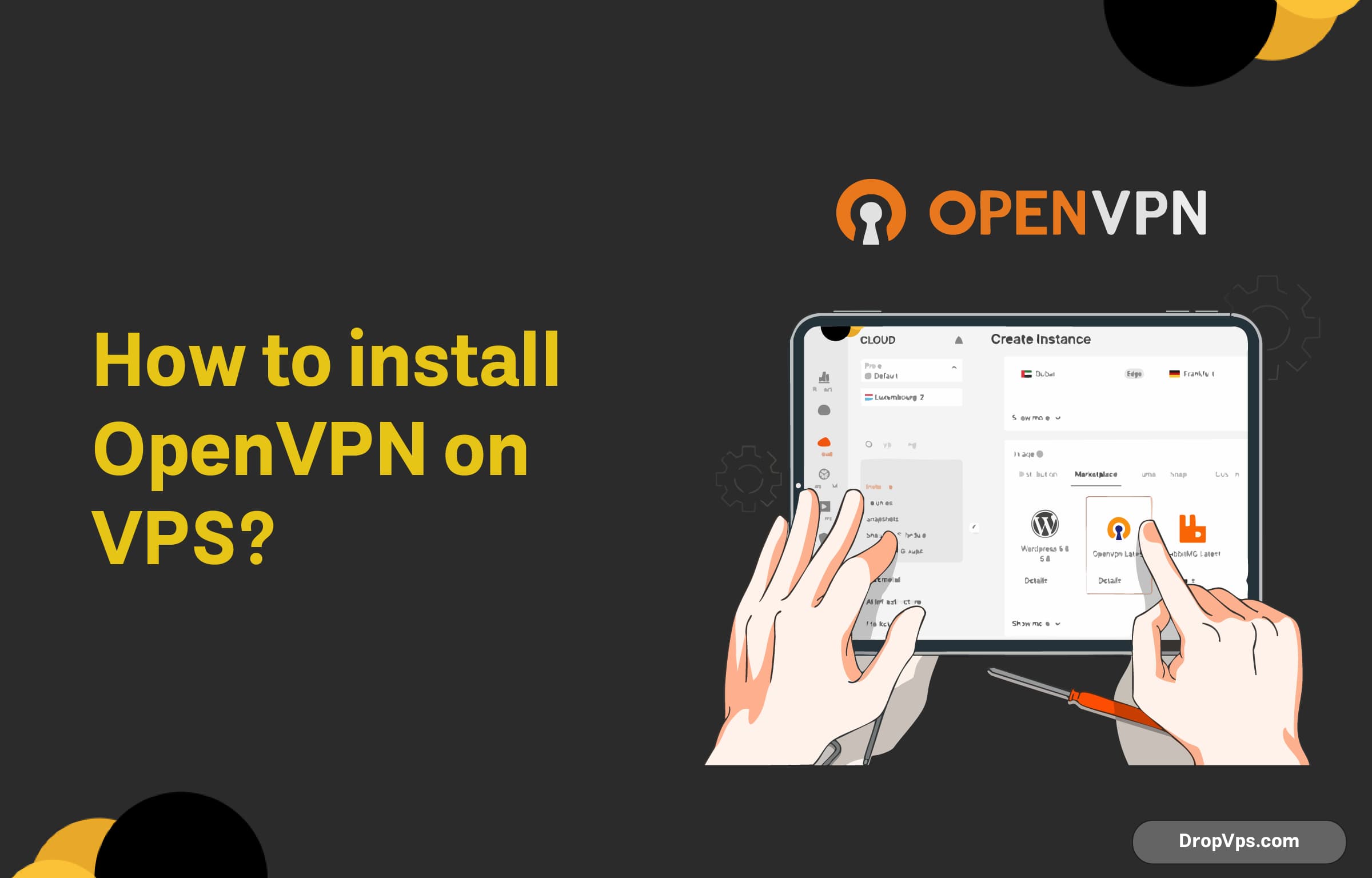Table of Contents
What you will read?
OpenVPN is a secure VPN protocol often installed on Virtual Private Servers (VPS) to create a private network over the internet. This allows you to securely access your VPS or other devices from anywhere.
Install OpenVPN on Windows Vps
First download client: Procure the latest OpenVPN software by navigating to the official download section and selecting the appropriate version compatible with your system architecture. The majority of contemporary systems employ 64-bit architecture, although verification of your specific system configuration through its properties is advisable.
Proceed with install

Import the Connection
Initiate the OpenVPN client application and navigate through the introductory guidance. Subsequently, express agreement with the terms of service as outlined in the accompanying visual representation.

Subsequently, it is necessary to either furnish the client with the precise URL of your VPN server or alternatively, import a dedicated connection file. It is essential to note that both the aforementioned URL and requisite connection files must be procured from a reputable VPN service provider.

Install OpenVPN on VPS: Ubuntu
To ensure the accurate reflection of all available software packages, it is recommended to execute the following command within your Terminal environment:
sudo apt-get updateGet Superuser Access
To initiate and complete the installation process, elevated user privileges are required. Please input the following command to grant the necessary access:
sudo suDownload the OpenVPN Components(Network Manager)
apt-get -y install network-manager-openvpn
Restart the Network Manager
To activate the recently implemented modifications, a restart of the network manager service is imperative. Please execute the following command to accomplish this:
service network-manager restartAdd Connection
The software has been successfully integrated into the Network Manager. To access the Network Manager, locate and click on its corresponding icon situated in the bottom left corner of your Ubuntu operating system interface.
Upon clicking the plus sign positioned in the bottom left corner of the interface, the subsequent tab will become visible.

Within this section, you have the option to either initiate the import file function to access an existing OpenVPN connection file or directly select the OpenVPN option to manually input and configure the connection parameters within the ensuing tab.

By successfully following the outlined steps, you have now established a secure and private network connection through your VPS using OpenVPN. This configuration provides a robust layer of encryption, safeguarding your online activities from potential threats. With proper configuration and management, your OpenVPN server will serve as a reliable gateway to a secure digital environment.
OpenVPN is a widely recognized open-source VPN solution that offers several benefits. Firstly, it is open-source software, providing transparency and frequent updates, which enhances security. Its strong security features include robust encryption standards like AES with 128 or 256-bit keys, ensuring data confidentiality and integrity.
The flexibility of OpenVPN allows for extensive configuration options, enabling users to customize settings according to their needs, including the ability to run on different ports and use either TCP or UDP protocols. This versatility extends to cross-platform compatibility, as OpenVPN works seamlessly on various operating systems such as Windows, macOS, Linux, Android, and iOS.
Moreover, OpenVPN is effective in bypassing firewalls and geographic restrictions, making it easier to access restricted content. It delivers high performance with low latency and can be configured to compress data for improved speeds on slower networks.
Scalability is another advantage, as OpenVPN can accommodate a growing number of users, making it suitable for both personal and corporate environments. The extensive community support surrounding OpenVPN facilitates troubleshooting and the exchange of best practices.
OpenVPN also offers various client authentication methods, enhancing security through options like username/password combinations and certificate-based authentication. Additionally, it can integrate with other security tools, such as two-factor authentication and firewalls, to bolster overall security.
With robust logging and monitoring capabilities, OpenVPN allows administrators to track connections and diagnose issues effectively. Lastly, being free to use, OpenVPN presents a cost-effective solution for individuals and businesses seeking reliable VPN services without incurring licensing fees.
In summary, OpenVPN combines strong security, flexibility, and cost-effectiveness, making it an ideal choice for a diverse range of users looking for a reliable VPN solution.

